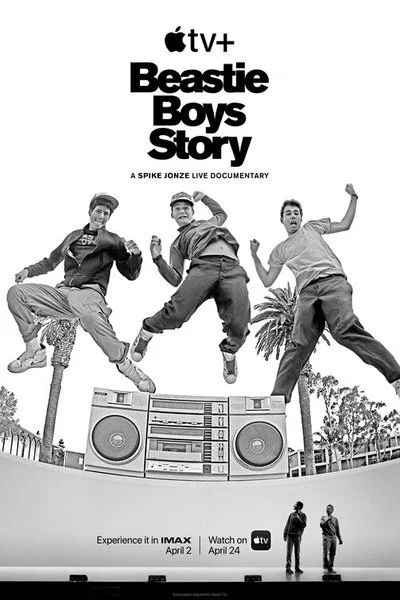'Greyhound'-Diet 'Dunkirk'
When you can't get to a movie theatre because of COVID-19 and need to maintain some of those movie pounds, crack open a nice can of Diet Dunkirk. Following the path of Christopher Nolan's former DP Wally Pfister with his directorial debut "Transcendence," filmmaker Aaron Schneider tries to catch the same man's magic in a bottle. The results are like Wally's, a half-cooked concoction that seems like it should be placed way in the back row of its streaming service. The truth to that allegory may ring more valid than ever since "Greyhound" was meant to debut in theaters, yet the Roni had other plans for Tom Hanks' newest picture. Currently resting on Apple TV+ "Greyhound" is not the film to kickstart the platform with a big blockbuster win.
The comparison to "Dunkirk" wouldn't be made if it just wasn't so aesthetically obvious. Everything from the score mimicking Hans Zimmer's shepherd's tone, to the blue color palette mirroring Hoyte Van Hoytema's dreary look at the cold sea down to the structure being puzzled together like a feature-length action scene is a cheap redundancy to a superior picture. The influence is unavoidably lazy, ripping me straight out of the picture. Translated from the novel "The Good Shepard" by C.S. Foster, Tom Hanks himself helms the duty of Commanding the screenplay. I love Tom Hanks, like any other man, to criticize who may be the sweetest person in Hollywood next to Keanu Reeves never feels good. I have to be honest, though; this isn't a compelling script.
A significant problem I had with "Dunkirk" despite my admiration for the film was its lack of compelling characters. Now I get why "Dunkirk" lacked character development after viewing "Greyhound." Hanks wants to emphasize personalizing Commander Ernest Krause (played by Mr. Hanks). The picture is marketed off of Krause's uncertainty during times of tremendous stress. If there were some conflicts relating to the man's inner turmoil, I'd be damned to find it. Through a half-developed love connection between Krause and his boo Evie (Elisabeth Shue), there's not much to know about Evie since we only briefly meet her once. It seemed like Evie was either a last-minute studio decision or a side-note in Mr. Hanks' screenplay that was almost forgotten. Commander Krause is supposedly placed in a situation way over his head as one of his ships sailing amongst 37 others across the North Atlantic is invaded by a Wolfpack German U-Boat. From here, the film plays a game of cat and mouse, which rings familiar to any other Naval Warfare film. The Germans sound like Hans Gruber radioing threats to Kraus' ship while Krause is desperately seeking a way to rescue his captive men.
The strife that Commander Krause must deal with is only communicated by how tired his feet are. With his bleeding heels, the Commander limps around, spouting orders within a Navy vernacular unfamiliar to the civilian's ear. Cutting frantically to beeping radars is the only action this film displays other than the occasional cannon blast. Although intentionally devoid of spectacle, Schneider's mimicry of Nolan leaves a creatively bankrupt shell of a thriller to the audience.
None of the shipmates are particularly memorable. There's the vessel's cook Cleveland (Rob Morgan), what we know about Cleveland is that he's cooking for a bunch of white people during an era of extreme segregation. The racial connotations for his character lie between the pixels of the frame yet aren't strong enough to provide anything dynamic, rendering Cleveland, an archetype model within the screen. Stephen Graham can't seem to get over whatever New York accent he does in everything he's in with his character. All I knew about his role as Charlie Cole was that he takes the Commander's orders. Each supporting cast member is dull to the point of excessive cinematic reiteration.
Upon the victorious climax in "Greyhound," I didn't even realize that the good guys won. It was an enormous "that's it?" moment. With the balloon deflated in a wet fart conclusion, Commander Krause's men are saved, and I could have known or cared less. When reaching the exhale falling point of the story, I was getting a bit sleepy. I'm perfectly fine with movie cliches. To criticize cliches would be a cliche. Those plot devices work because they have benefitted movies for decades. Where I develop a distaste for cliches is when they're used as a crutch. Not knowing what to do with the love interest, Evie is just inserted into the story as a plot device for us to care about Krause's personal life. Needing a supporting cast, everyone is written as a simple rendition of real-life human beings who served in vehicular conflict. Exposition is inserted through blurbs of text at the beginning detailing what the audience needs to know. At the end of the film is the post description telling the audience where everyone wound up. All the familiar beats are played, the film is forgotten, onto the next picture. Apple TV+ has much more to offer like "Beastie Boys Story." "Greyhound" is not the win Apple is looking for right now.



